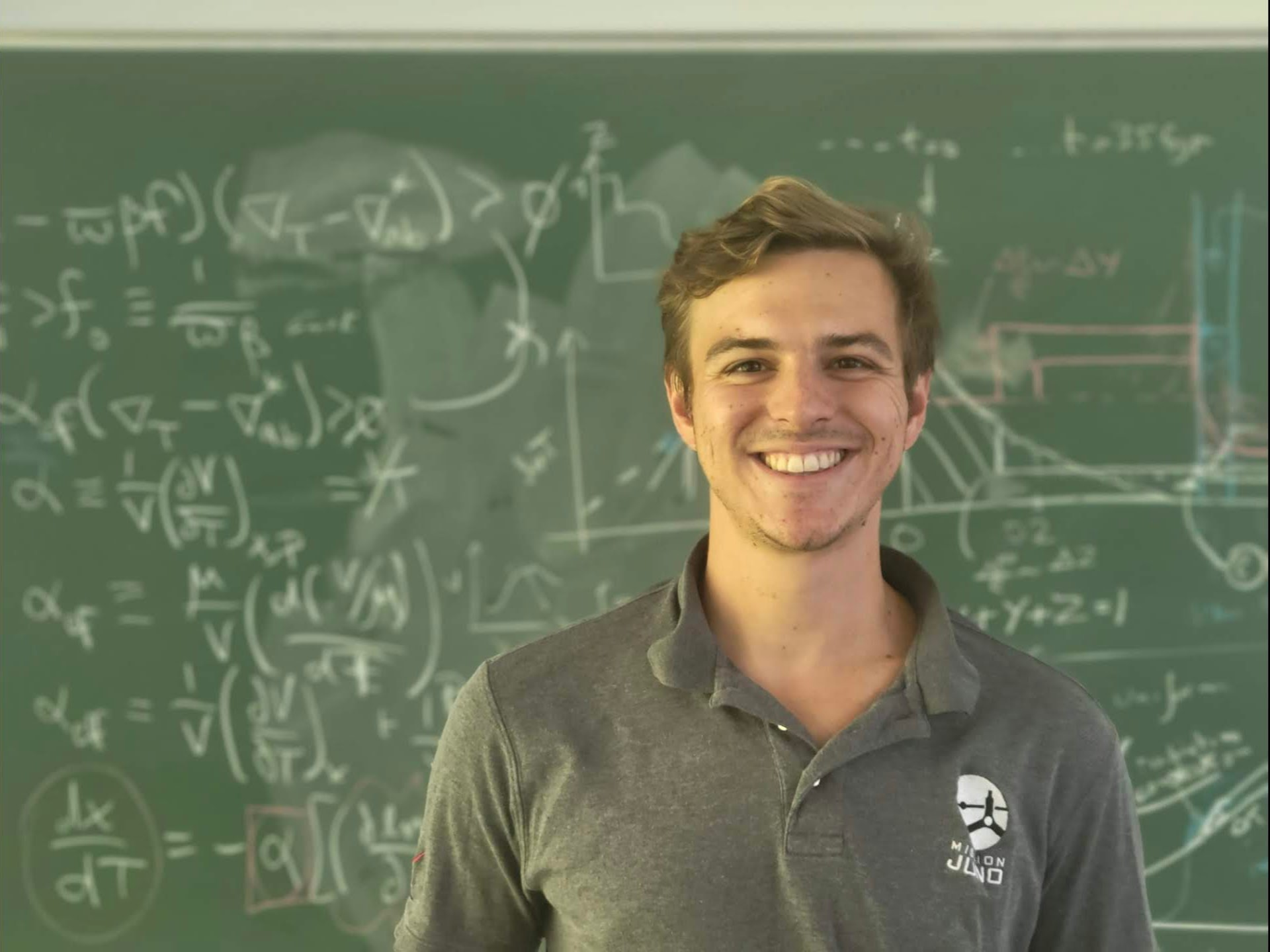Dr. Stephen Markham

Dr. Markham was born and raised in Las Cruces, New Mexico before obtaining his undergraduate degree in physics at Cornell University, where he participated in research topics in particle accelerator physics, planetary science, and galactic astrophysics. He then obtained his PhD in Planetary Science at the California Institute of Technology with his thesis title "Gas planet seismology and cooling," funded by the Future Investigators in NASA Earth and Space Science award. He has also been a postdoctoral scholar at the Observatoire de la Côte d'Azur/Université de la Côte d'Azur in Nice, France funded by the French space agency CNES. He is currently the Tombaugh Scholar at NMSU.
Dr. Markham's research focuses on a wide array of outstanding problems in planetary science, with a focus on giant planet atmospheres and interiors. His specialties are giant planet seismology and exotic meteorology in abyssal hydrogen atmospheres. He is a science team member of the Juno mission to Jupiter, and involved with science planning at the Kepler Institute for Space Studies for the upcoming flagship mission to Uranus.
Below is a selected list of publications:
Markham, S., Guillot, T., & Li, C. (2023). Rainy downdrafts in abyssal atmospheres. Astronomy and Astrophysics, 674, A177.
Markham, S., Guillot, T., & Stevenson, D. (2022). Convective inhibition with an ocean-I. Supercritical cores on sub-Neptunes/super-Earths. Astronomy & Astrophysics, 665, A12.
Markham, S., & Stevenson, D. (2021). Constraining the effect of convective inhibition on the thermal evolution of Uranus and Neptune. The Planetary Science Journal, 2(4), 146.
Markham, S., Durante, D., Iess, L., & Stevenson, D. (2020). Possible evidence of p-modes in cassini measurements of saturn’s gravity field. The Planetary Science Journal, 1(2), 27.
Markham, S., & Stevenson, D. (2018). Excitation mechanisms for Jovian seismic modes. Icarus, 306, 200-213.